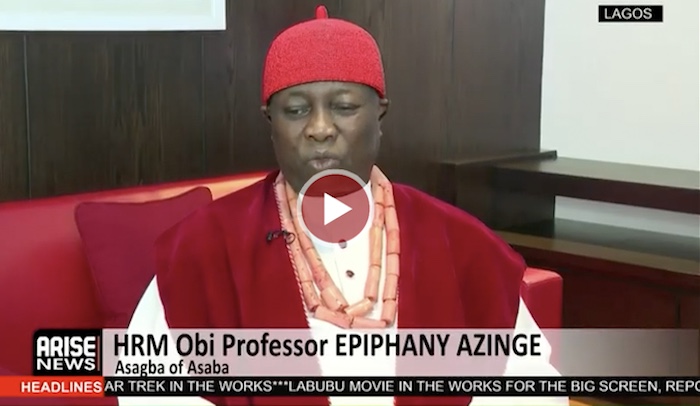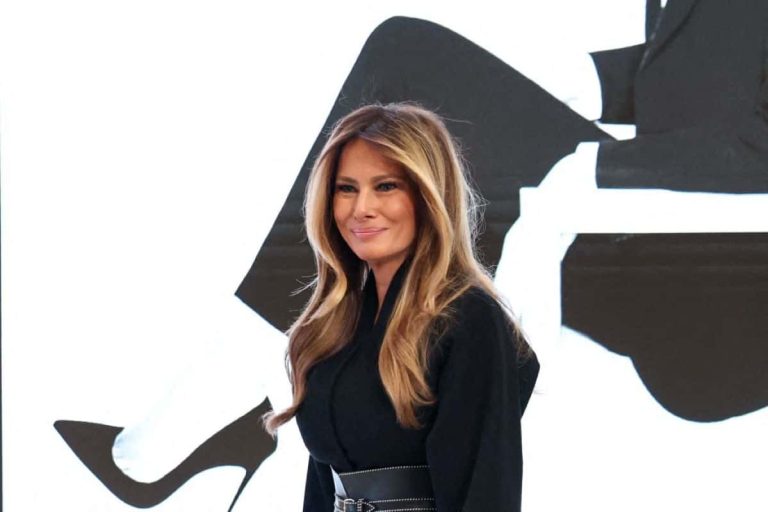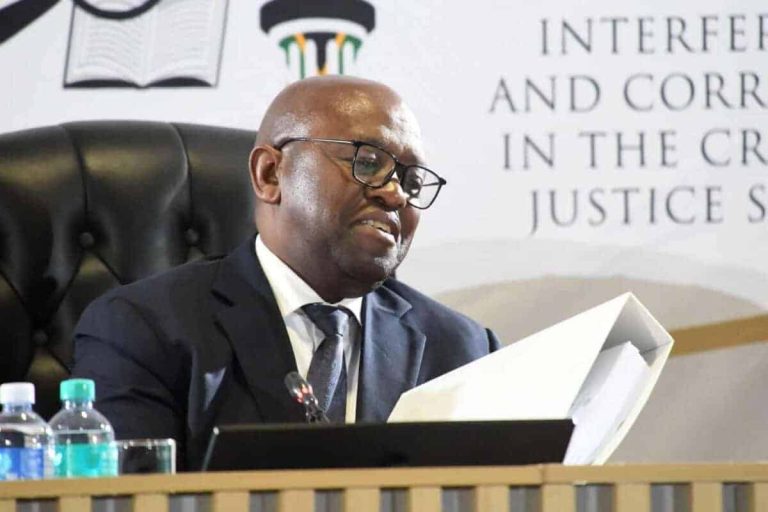

The Asagba of Asaba, His Royal Majesty Obi Epiphany Azinge, has described Asaba as the fastest growing state capital in Africa south of the Sahara, citing its rapid expansion, rising population and increasing regional influence.
Speaking during the interview on ARISE News on Sunday, the monarch said Asaba’s growth has become undeniable, noting that the city is evolving into one of the most significant urban centres on the continent.
He described his first year in office as a demanding but fulfilling transition from academia to traditional leadership.
He said the journey had been “quite an instructive one year,” noting that the shift from university life to the throne came without any structured guidance.
For him, peace remains the defining asset driving the city’s growth.
He stressed, “peace should be our main industry because, as I say repeatedly and I stand to be challenged, that Asaba today is the fastest growing state capital, not just in Nigeria but in Africa, south of the Sahara.”
According to him, “transiting from the academia to traditional leadership is certainly not an easy ride. And definitely, one is not mentored or tutored for that as far as a Asaba tradition is concerned. And there is no predecessor in office to even assist, direct or guide you as the case may be.”
The monarch added that maintaining peace, handling conflicts, mainstreaming gender concerns and engaging government on development formed the core of his first year. He said he believed he had adjusted well, adding that “with the support of the Asaba people we have been able to navigate this to a very large extent successfully.”
The Asagba described Asaba as a uniquely strategic city whose location demands heightened attention to security and cross border concerns.
He said “Asaba is strategic, not just as a capital city of Delta but also because of its location by the banks of the Niger and separating Anambra State and Delta State.”
Azinge credited the city’s stability for attracting remarkable investment inflows. He said Asaba has benefitted from a cooperative security network that includes local vigilantes, state authorities and federal agencies.
According to him, “we do not have incidents of kidnapping in Sabah.”
He also highlighted government efforts to improve electricity, saying the new independent power project would light up the entire capital and create new economic opportunities.
He said the project “will help to bring in more investment” and “lead to high employment opportunities.”
Azinge reiterated support for ongoing efforts to strengthen the legal standing of traditional rulers.
He said the key reform was “the issue of trying to mainstream and ensure that traditional institution is recognised.”
Backing the proposed bill by Senator Simon Lalong, he argued that countries such as South Africa, Namibia and Ghana already provide constitutional recognition for their traditional institutions.
He emphasised that the push for reform was not aimed at challenging existing tiers of government.
According to him, “we are not in competition with any and we are not trying to challenge any but we only feel that the recognition that comes with entrenchment into the constitution will be second to none.”
The Asagba described the proposed Asaba Museum as an essential cultural project.
He said “any traditional ruler will understand that as a custodian of the culture and the traditions of a people, certainly you draw a lot of strength and inspiration from your past.”
Azinge explained that the museum would preserve relics, artefacts and stories that define Asaba’s identity, insisting the initiative should not generate controversy.
He noted that “our people are fully supportive and we have consultants that are directing us and we started putting together the artefacts.”
Commenting on the agitation for Anioma State, Azinge maintained his long standing position that the state should remain within the existing Delta North boundary.
He said, “I am for enormous in enormous, and that means enormous within the geographical spread of the nine local governments that constitute Delta North.”
He added that he had “never been supportive of enormous that transcends the boundary of Delta State.”
On development concerns, the monarch urged a broader understanding of Delta’s diverse geography and spending responsibilities.
He said “Delta State is not like a one city state, no. You have Warri, you have Sapele, you have Ughelli, you have Abraka, and you are still counting.”
Azinge praised newly declared industrial zones such as the Kwale area, saying it would drive investment and jobs. While acknowledging gaps, he insisted the region was not neglected.
According to him, “not much has been done, no doubt. But I believe that the focus of government is now shifting to that area.”
Faridah Abdulkadiri



